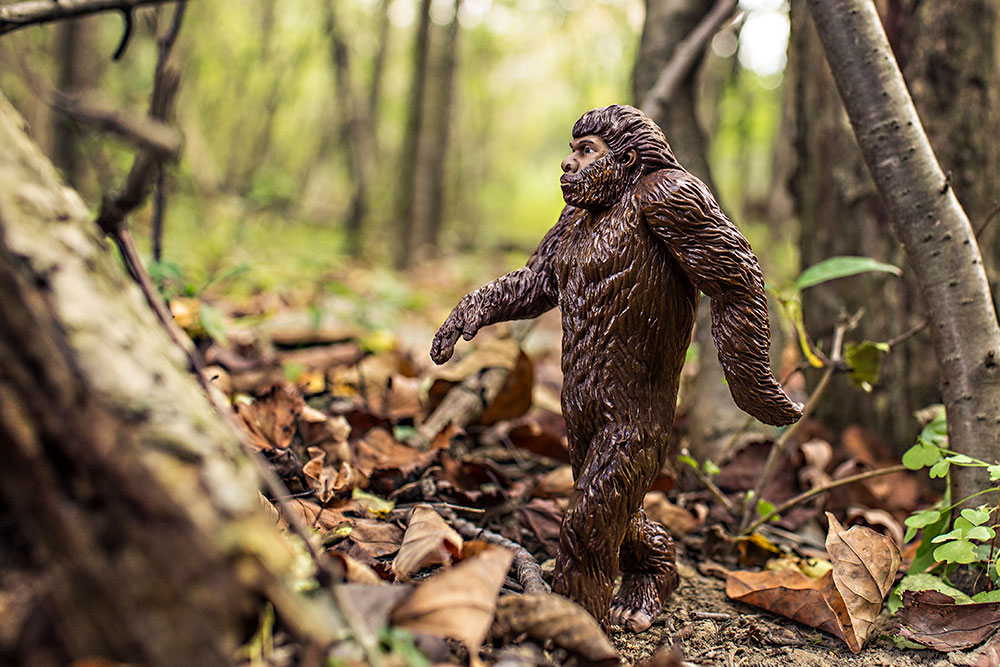At 8:31 a.m., the office is as cold as a meat locker. Shivering in a cocoon of sweaters, I’m groggy and exasperated as I pick at a lemon muffin, working my way through the first round of edits on an article outlining the quantum vibrational time harmonics of fifth-dimensional consciousness as channeled from a flamingo. Normally I would save something this embedded with esoteric jargon for a later hour, preferably after coffee. Tough luck for me—we’re almost through with edits for next month’s magazine, and of the submissions left, it was this or space Jesus. And space Jesus picks some snippy authors to speak through. The flamingo and her medium, on the other hand, are very polite.
Before joining Ooligan Press, I was a copyeditor and ebook designer at an independent New Age publisher in the Southwest. In addition to spiritual self-help books, the company published a monthly magazine of material channeled from religious figures, animal spirits, ancient gods, and an array of benevolent extraterrestrials. On a typical day I’d edit articles in the morning before moving on to organizing submissions in the editorial email inbox. I’d answer questions from conspiracy theorists, query an archangel or two, and forward copies of submissions to authors who misplaced their own files in another dimension. When emails were done, I’d take a lunch break. I’d spend the remainder of the day converting an abridged history of Atlantis or an autobiography penned by Bigfoot into an ebook.
The publishing process there was as eccentric as the material. We lacked a marketing department, so beyond the magazine it was up to authors to advertise. We did not adhere to a long-term production schedule, either; books were hurried through the editorial process over a month or two and published whenever we happened to finish with them. Workflow was unconventional and sometimes chaotic, but things got done and we kept afloat.
My first job in publishing could not have been more different. Before the New Age press, I edited books at a Texas publisher a coworker once nicknamed the “smut shop.” The editors of smut shop worked on romances, eight to a table, each of us unable to avoid glimpsing the explicit content unfolding on one another’s monitors, each of us slowly faking our cool until over the months this discomfort subsided to indifference. Smut shop’s business model was high-volume to an extreme. Although it, too, lacked a marketing department, its Google spreadsheet production schedule stretched hundreds of titles into the future, hectic with an arcane system of color coding. The rate of production, which was around four books a day, made a Sisyphus of each of us more often than not, but the editors toiled with resilient good humor. I learned many editorial basics from them, but the most valuable skills they cultivated in me were diplomacy and a sense of humor.
My experiences in small fringe publishing have taught me a few things about what works at a small press, and a few more about what doesn’t. I returned to school this year to get a clearer picture of mainstream publishing practices and to develop formal skills and knowledge appropriate to those practices through PSU’s Book Publishing program. I’ve only been with Ooligan for a few weeks, but already I’m participating in an area of publishing that I’ve never had the opportunity to experience before: marketing research. The team of graduate students I’ve been assigned to has mapped out a production schedule for the title we’re working on. It spans months, not days. My previous employers held few meetings, if they held them at all, and communication between departments was often muddled; at Ooligan, the entire press meets regularly to check in with each team on their title’s progress.
The transition from working world to student press has been a relief in some ways. In this environment, I have already been encouraged to try new things, to take my time with work, and to learn from mistakes. A wrong step, while still frightening, can present an opportunity for growth rather than a tangible threat to my livelihood. But the transition has not been easy, either. I feel disconnected from my peers, uncertain of what I know, and infested with bad habits. I know I have everything to learn, but I’m excited to finally be in the right place to learn it.

